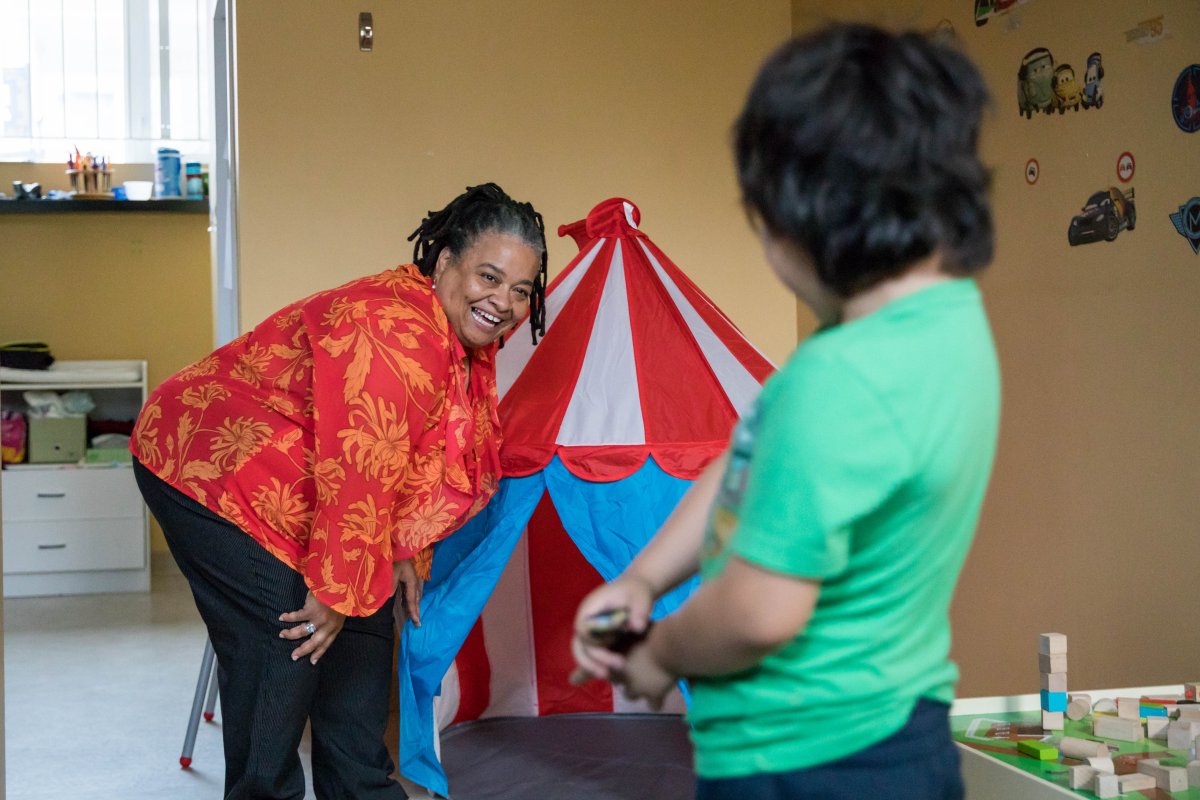
“Time to heal.”
In her interview for La Salle, a second-stage shelter for women in crisis in Edmonton, that’s what Vanessa said she wanted to get from her stay. “It would give me six months to start healing, work on myself and help my children with their traumas,” says Vanessa, who escaped an abusive relationship with her four children.
And heal she did. This was a year and a half ago, and today, Vanessa, who preferred not to use her last name, has moved on to live in a safe space with her children and to work helping other women flee domestic violence.
She’s learned that she’s one of many women in situations like this. Now, amid the coronavirus pandemic, La Salle is seeing many more women needing a safe space to escape abuse. By the beginning of November, La Salle was full. Catholic Social Services (CSS), which operates the shelter, had to use additional apartment units to shelter as many as 14 women and their children.
As Alberta marks Family Violence Prevention Month in November, staff emphasize the importance of continuing to support women in crisis.
READ MORE: Domestic disturbance calls jump amid coronavirus, as many advocates feared
“The people we’re seeing are people who were already vulnerable and in some sort of crisis. COVID-19 has amplified those challenges,” says Eoin Murray, the director of development and community relations for CSS. La Salle is one of several CSS programs that depend on financial support from the organization’s Sign of Hope fundraising campaign, which aims to raise $2 million by the end of the year.

Get daily National news
Any funds raised go a long way. As a second-stage shelter, La Salle helps families transition from a crisis shelter for abused women into a new life through a number of programs and resources.
“She may still worry about her safety, so a second stage is ideal, as its main focus is providing safety to the families; she may need help navigating the legal system and time to reconnect with her children. She may also be dealing with the trauma that happens when one is in an abusive relationship, so a counselling program is imperative,” says Patricia Vargas, director, children, family and community services for CSS.
Having those programs and supports is key to moving on. “A lot of women in abusive relationships don’t have systems of support because they’ve been severed by the abuser,” Vargas says.
That’s why the community at the shelter is also important. Fellow residents who may have had the same experiences can provide an ear to listen, and offer guidance and friendship.
During Vanessa’s stay, La Salle taught her basic cooking skills and offered therapy for her and the three children who were in the shelter with her. “My youngest, who was being abused, was angry and aggressive, and the counsellors worked with him. My daughter had been suicidal, but began speaking with a therapist there,” she says. Vanessa also took a “triple P” positive parenting program to learn how to reconnect with her children.
These kinds of supports are clearly in demand for women in crisis right now, Vargas says, given the increased number of applicants she is seeing. “People see us as a safer place to be, since women live in their own apartments,” she says.
La Salle’s residents also found they needed different kinds of help during the pandemic. Single moms were suddenly isolating with their kids, so shelter staff pulled together kits with toys and more to entertain children in lieu of the child care the shelter usually offers.
“We also started bringing women their groceries every week, so they didn’t have to take their children store to store to look for basic needs,” Vargas says. Armed with PPE, La Salle staff helped clean the units, because the mothers weren’t getting a break to do it themselves. “Women also needed to connect to workshops and children to schools, so we put Wi-Fi in as well,” she explains.
But increased needs have put more financial pressure on CSS, which is why this year’s Sign of Hope campaign is so critical. Murray estimates that demand for programming overall has gone up by approximately two-thirds in Alberta in 2020. While the province is marking Family Violence Prevention Month in November, he says the need for financial support for women in crisis extends beyond this month.
“Our need for financial support is at critical levels. Albertans have always been generous, and although times are difficult, we hope they can do that again,” Murray says. “We’re asking Albertans for their support to make sure every vulnerable woman and child has a safe place to return to.”
READ MORE: When home isn’t safe: How coronavirus puts neighbours on front lines of abuse
Your donation to Sign of Hope makes a difference to families in Alberta. Visit Catholic Social Services to learn more about La Salle and to be part of this year’s campaign.



